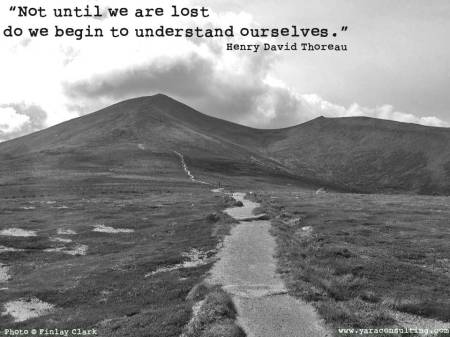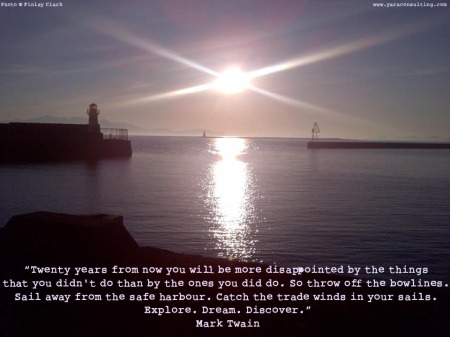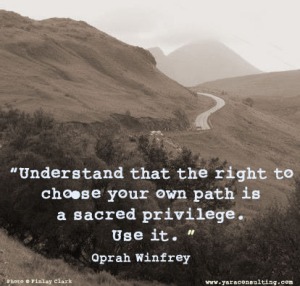How busy and important are you? I’m beginning to think that we live in a culture where we reward ourselves – and others – for being busy and important, rather than being productive.
It’s almost as if the appearance of productivity is more important than productivity itself…and that isn’t useful for the individuals caught in this mindset, or for the organisations for which they work.
Here are 5 familiar scenarios, and what they probably really mean for those involved.
“I was in the office until 11 o ‘clock last night!”
I’m sure we’ve all been aware at some point in our careers of ‘presenteeism’, and the bizarre situation that the person to stay in the office the longest gets the most kudos from managers and colleagues.
I used to work with someone years ago who routinely worked for HOURS longer than anyone else in the office, and would tell us all pretty much every single morning what time he’d left the office the night before. He’d also make a point of looking at his watch in an obvious manner when the rest of us left work at a sensible hour.
Was he more productive than the rest of us? Who knows. What I DO know, though, is that he burned himself out and had a breakdown a few short years into his management role.
There are always going to be times when working long hours to meet a deadline might be required. If you find yourself saying this with any degree of frequency though – consider what’s actually going on, and where your focus is.
What people THINK they are saying here is “I work really hard. I sacrifice my free time for the company. I work harder than the rest of you. Look at ME, management – I deserve a bonus!”
Is this what’s actually going on? Or is it actually a matter of “ I can’t or don’t manage my time so that I can actually leave work at a sensible hour. I’m a martyr to the company. I don’t actually HAVE a life outside work.”
The result is that long term you’re not doing yourself or your company any favours. You’re more likely to make mistakes because you’re tired or – as my colleague did – burn yourself out completely.
“I had 900 emails waiting for me when I got back into the office!”
Why is it that having a million emails in our inbox makes us feel important? Do we really believe that every single one demands our attention, and that everyone who sent us a message is waiting with baited breath for us to reply with our words of wisdom?
Sometimes when I’m delivering training programmes, there will be a participant who revels in telling everyone at the first break time how many emails they’ve received since the start of the programme two hours ago.
When I, or anyone else suggests that they could probably ignore some, or get themselves taken off the recipient list for others, we’re met with the response that “they couldn’t possibly do that! What if they missed something important?!”
Actually, if a matter really IS that important and your immediate response is essential the sender will email again, or text/call you.
Again, if you find yourself saying this, consider whether or not your focus is in the right place.
What people THINK they’re saying is “I am in demand. I am important, and people want my opinion on things. I am popular – look how many people want to get in touch with me!”
It could be that they are indeed in demand. Or it might be that what they actually mean is “Receiving lots of emails gives me a sense of importance that I don’t get otherwise. It validates me somehow.” Or “I’m afraid of being out of the loop – even if I don’t particularly need to be in the loop.”
“I need to be there for my team”
This happens quite a lot on training programmes: someone within the room will make it clear to me as facilitator (and therefore to everyone else in the room) that they are working on something extremely important, and may need to dash out or take a call at any given moment to rush to the aid of their team back in the office.
Again, to be fair, there will always be circumstances in which this is entirely reasonable. There are also times, though, when it’s not, and it’s said for effect.
What people THINK they are saying is “I’m indispensable to my team. They can’t work without me. I’m a manager, don’t you know, and therefore very important!”
To the people in the room, what they’re saying is “I’m more important than you. My work is more important than engaging with you”
Does the team really need them? Or is what they’re really saying “I need to control my team.” Or “I’m worried that they will do well without me…and not need me” …or “I’ve actually mismanaged my team so that they can’t or won’t work without my direction. I can’t or won’t delegate responsibility”.
“I haven’t had a holiday in 10 years!”
Why do some people see sacrificing holiday time as a virtue?! Is working without a break REALLY something to be commended?
Another acquaintance of mine pretty much cancelled Christmas because of what he saw as his work requirements. His I.T. company was (and still is, I believe) working on a new piece of software. I’d bumped into him in mid December and asked what his plans for the festive season were, to which he replied “Oh, we’re working right through – we have to”.
What he THOUGHT he was saying was “I’m dedicated to my work. My groundbreaking work is extremely important”
What he was actually saying (given that he was expecting his team to similarly sacrifice their Christmas holidays and continue with the project) “I’m a slave driver. Cancel Christmas. Just call me Ebenezer Scrooge. Actually, I have no friends and family to celebrate with, so I’m making sure my team don’t enjoy themselves either.”
There is no virtue in pushing yourself (and others) to breaking point – a sensible work life balance is essential for both wellbeing and productivity.
“I wish I had the time for stuff like that, but I’m just too busy!”
Last autumn I had collected some sloes from the hedgerows with which to make sloe gin for Christmas, and was offering them to some friends in case they wanted to do the same. One of the group loudly said that she wouldn’t take any because she didn’t have time to make sloe gin. She wished she did, but she just had far too much to do.
Again, I guess what she thought she was saying was ‘I work harder than you. You waste your time with frivolous things, but I have more important and demanding things to attend to.”
She just came across as a little bit patronising. It only takes 20 minutes to make half a dozen bottles of sloe gin, after all. And she was missing out – not only does it not take long to make, it’s quite fun to do and results in a wonderful festive drink that makes a nice gift for others.
One has to question why this person feels the need (fairly consistently) to point out how busy they are, and that they have have more to do than everyone else. Are they looking for respect? For sympathy? It’s hard to tell.
Here’s the thing. EVERYONE is busy…and actually EVERYONE is important in their own way.
To what extent is your focus on how busy and important you appear to everyone else…and to what extent is it on how productive you are?
If it’s the former…what can you do to refocus and make a difference?





